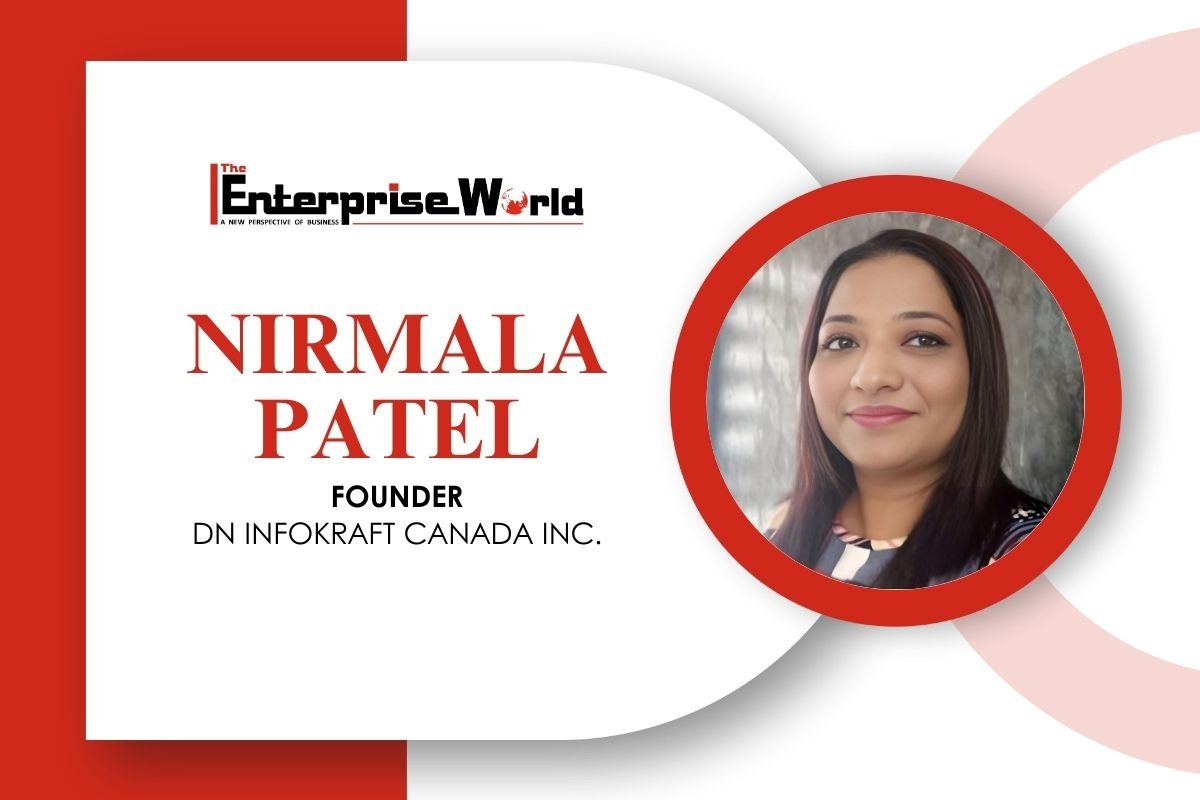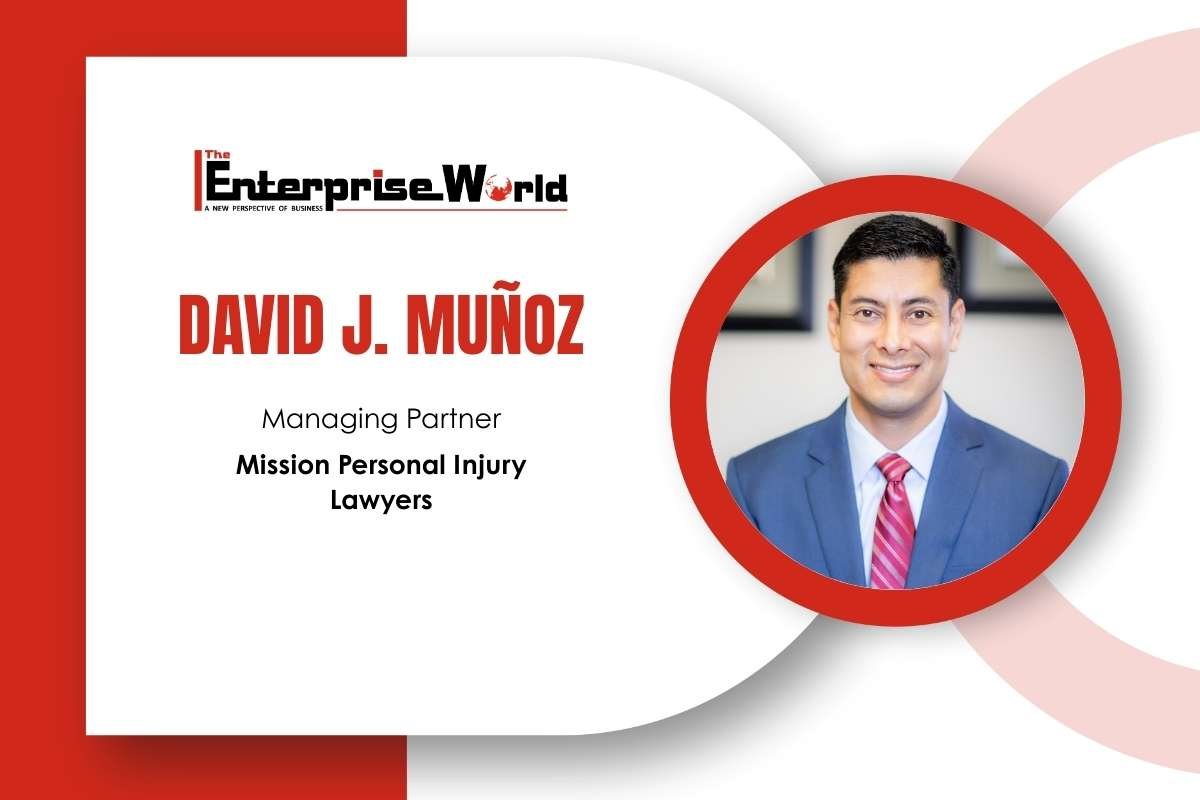In industries where compliance, quality, and traceability govern every action, reliability is essential. Pharmaceutical manufacturers, utility providers, and life sciences organizations face high-stakes environments where even a single system flaw can trigger production delays, regulatory action, or safety risks. Designing for reliability at the architectural level is what separates scalable transformation from fragile digital change.
Few professionals embody that principle more comprehensively than Nirmala Patel, SAP Lead Consultant at NTT DATA and Founder of DN Infokraft Canada Inc. Over a 16-year career spanning metallurgy and enterprise systems, she has engineered operational integrity into some of the most complex SAP transformations across North America. Her work reflects a belief that digital systems must do more than function; they must also communicate clearly, act predictively, and scale without compromising trust.
From Metallurgy to Mission-Critical Systems
Nirmala Patel began her career in physical metallurgy, where minor inconsistencies can lead to large-scale failures.
Working with corrosion testing and ASME/ASTM-based certifications, she internalized a principle that now underpins her SAP architecture: systems fail when assumptions are undocumented and unchecked.
Her early exposure to SAP revealed striking parallels between materials science and enterprise design. Both disciplines demand precision, consistency, and traceable processes.
The transition to enterprise architecture was a logical step, allowing her to move from inspecting material integrity to designing systems that enforce it.
Leading Digital Transformation at Scale
In late 2024, Nirmala became part of NTT DATA, a global leader in IT and business services and one of the world’s foremost consulting and technology firms. One of her most significant contributions to NTT DATA’s success was her leadership for its client, the Swiss multinational holding healthcare company Roche, where she guided the Roche Pharma Aspire S/4HANA Implementation – a major global rollout spanning North and Latin America.
As SAP Lead Consultant for Roche Pharma’s global S/4HANA Aspire Program, Nirmala Patel has led architecture for Quality Management (QM) and Production Planning (PP) across more than 30 international manufacturing and quality sites of Roche.
The challenge was formidable: unify diverse regulatory landscapes, including FDA, EMA, and ANVISA, into a cohesive system while preserving the flexibility needed for local operations.
Her solution was to do a smart sampling strategy using SAP Business Rule Framework Plus (BRF+), where inspection logic dynamically adjusted based on supplier reliability, material risk, and historical quality data. This replaced static, one-size-fits-all sampling with a responsive, risk-based model.
Results Included:
- A 27% reduction in redundant sampling activities
- Greater audit readiness through rule-based transparency
- Streamlined quality logic is manageable across global teams
By simplifying rather than adding layers, the solution became a global model for harmonized pharmaceutical quality, built not through complication but through clarity and control.
Predictive Quality, Not Reactive Remediation
Traditionally, deviations and defects are flagged after they’ve disrupted production, or worse, reached the customer. Nirmala’s architecture inverted that reactive model. She designed an AI-enabled inspection framework embedded within SAP QM and SAP Analytics Cloud, allowing early detection of risk patterns during production.
By linking real-time inspection data with statistical trend analysis, her methodology flagged anomalies before they escalated.
Based on her methodology, decision-makers shifted from explaining failures to preventing them, supported by dashboards that delivered interpretation.
Tangible Impact:
- A 34% drop in rejected batches on high-volume production lines
- Live monitoring that enabled proactive intervention
- Continuous improvement informed by real-time insights
This transition to forward-looking visibility aligned perfectly with Roche’s Quality 4.0 objectives, driving both regulatory adherence and operational efficiency.
Freeing Human Attention Through Automation

Attention is a limited resource in regulated industries, often consumed by repetitive, manual actions that add minimal strategic value. To redirect that focus, Nirmala introduced Robotic Process Automation (RPA) into SAP quality workflows, allowing software bots to handle routine tasks across inspection and inventory processes.
Automated Tasks Included:
- Recording and posting inspection results
- Closing lots and managing stock movements
- Generating and delivering Certificates of Analysis (CoA)
These enhancements eliminated over 40% of manual effort in inspection-related workflows, saving an average of 22 hours per lot. Beyond time savings, automation enabled teams to concentrate on analysis, exception handling, and improvement, areas where human expertise is irreplaceable.
DN Infokraft: Delivering Architecture Without Bureaucracy
In founding DN Infokraft Canada Inc., Nirmala Patel set out to solve a common industry challenge: high-value architecture often gets diluted by layers of process and overhead.
Her firm offers direct engagement with seasoned architects, ensuring every decision reflects both strategic vision and hands-on experience.
The firm specializes in regulated industries, delivering transformation programs that align modernization with compliance. Key areas of focus include:
- SAP BTP and analytics-based architectures
- GMP-aligned cloud integration for pharmaceutical firms
- AI-driven quality dashboards and data pipelines
- Governance models designed to retain knowledge during team transitions
DN Infokraft’s engagements with clients such as West Pharma reinforce this philosophy: build systems that explain themselves, persist through turnover, and support compliance without adding friction.
Governance That Clarifies, Not Complicates

Effective governance is about transparency. Nirmala’s approach embeds rationale into system configurations, ensuring that future teams and auditors can understand both intent and execution.
During Roche’s deployment, she standardized over 180 configuration objects, limiting variation to nine documented exceptions. Her governance models include:
- Annotated BRF+ decision logic
- Configuration guides explaining both “how” and “why”
- Auto-generated audit trails with a consistent structure
The result: a 95% reduction in process variation from legacy systems, and environments where compliance is intuitive, not interpretive.
Certifications That Reinforce Expertise
Nirmala’s methodology reflects not just experience but active engagement with SAP’s evolving ecosystem. She holds over eight certifications, including:
- S/4HANA Production Planning and Manufacturing
- Quality Management with SAP ERP
- Asset Management and Utilities
- SAP Activate Project Management
- S/4HANA Cloud (Private Edition)
These credentials validate cross-disciplinary expertise and offer clients confidence that every recommendation is grounded in up-to-date capabilities and not outdated precedent.
Pushing the Boundaries: Future-Ready Systems

Nirmala’s current focus is on self-governing enterprise systems and architectures that learn from quality patterns, anticipate failures, and act proactively. Her research includes:
- AI-infused workflows that adapt based on historical deviation trends
- Blockchain traceability for cold-chain and high-risk products
- Cloud-native platforms where audit readiness is real-time, not retrospective
These capabilities are already moving from prototype to production within client environments. They represent a future where reliability is not a reactive posture, but a built-in capability measurable, explainable, and self-improving.
A Philosophy of Accountability and Clarity
Across roles, companies, and industries, Nirmala’s work follows a consistent thread: system integrity is an architectural responsibility.
She believes that enterprise systems must be as accountable and transparent as the people who use them. That belief drives her dual mission, delivering reliable transformation through NTT DATA and advancing architectural excellence through DN Infokraft.
Nirmala Patel is a top expert in enterprise system architecture, known for her precise, transparent, and predictive methodology that prevents system failures by documenting and verifying assumptions rigorously. She leads innovative SAP transformations that integrate AI, dynamic risk-based models, and robotic automation to streamline processes, reduce manual effort, and enable early risk detection. Her governance strategies focus on clear, auditable configurations that reduce process variability and ensure compliance. As founder of DN Infokraft Canada Inc., she delivers high-value solutions for regulated industries, building scalable, self-explaining systems. Her recognized leadership and unique methodology position her among the foremost professionals in her field, consistently driving reliable, future-ready enterprise solutions.
In complex industries where every inspection, configuration, and compliance checkpoint carries weight, Nirmala Patel is setting a new standard. Her career shows that the foundation of reliability isn’t just guesswork but design. And when that design is built on precision, communication, and foresight, enterprises gain trust that scales.
Through precision, accountability, and architectural foresight, Nirmala Patel continues to redefine what reliability means in the digital age.
Connect with Nirmala Patel on LinkedIn.
About the Author
Priya Desai is a technology strategist and writer focused on digital transformation and enterprise reliability. She explores how thoughtful architecture and innovation can drive lasting impact across complex industries.


















